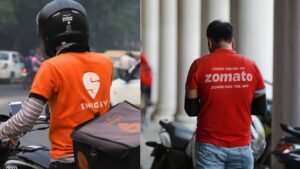Tatkal Ticket Scam Uncovered: Indian Railways Cracks Down on Bots and Fake Accounts

Tatkal Ticket Scam Uncovered: Indian Railways Cracks Down on Bots and Fake Accounts
New Delhi, June 4 — In a major crackdown on ticketing fraud, Indian Railways has exposed a widespread scam behind the frequent glitches and rapid disappearance of Tatkal tickets on its IRCTC portal. The investigation revealed the use of bots, fake user accounts, and illegal software that allowed scammers to book thousands of tickets within seconds — leaving genuine passengers waitlisted or helpless.
According to a recent Times of India report, between January and May 2025 alone, IRCTC flagged around 2.9 lakh suspicious PNRs created within just five minutes of the Tatkal booking window opening. In response, officials have deactivated 2.5 crore user IDs and marked another 20 lakh for revalidation. These accounts were mostly linked to travel agents or individuals misusing loopholes in the system using temporary email IDs and automation software.
A total of 6,800 domains used to generate fake email addresses have been blocked, and 134 cybercrime complaints have been registered to address the growing digital manipulation of the railway booking system.
Tatkal Turns Into Black Market Turf
Originally launched to help passengers book last-minute travel, the Tatkal scheme has become a hotspot for digital fraud. Illegal software tools like Nexus and Super Tatkal automate the entire process — logging in, filling out forms, and making payments — faster than any human can.
A recent survey by LocalCircles found that 73% of users got waitlisted within the first minute of booking, while 30% gave up and turned to agents. “Booking a Tatkal ticket is harder than clearing UPSC,” said one user, echoing the sentiment of many.
IRCTC’s Fight Against Digital Fraud
To address these issues, IRCTC has rolled out anti-bot software and partnered with a leading content delivery network (CDN) to manage the traffic surge during peak hours. These new measures aim to ensure a fair booking process by identifying and blocking automated scripts.
Officials highlighted a recent success: on May 22, 2025, IRCTC recorded its highest-ever per-minute bookings — 31,814 tickets. Moreover, the attempt-to-success ratio improved from 43.1% in October 2024 to 62.2% by May 2025, indicating better chances for genuine users.
I have pointed this out many time
— sandip sabharwal (@sandipsabharwal) June 3, 2025
Although I haven't travelled by Rail for years
I have tried to book for my staff several times
& Failed exactly like this 90% of the time unless it's AC Tatkal where you still might get@PMOIndia @AshwiniVaishnaw https://t.co/LYapGqkZNH
Industry Voices Call for Further Reforms
Thyrocare founder A. Velumani suggested a new approach to ease the burden on IRCTC servers — releasing Tatkal tickets in hourly slots rather than all at once. His suggestion, posted on social media, went viral, with thousands of users supporting the idea.
Investor Sandip Sabharwal also shared his frustration, noting that he has failed 90% of the time while trying to book Tatkal tickets for his staff. “Unless it’s AC Tatkal, chances are close to zero,” he said in a post on X.
Beyond statistics, the human cost is also significant. Several users have shared emotional stories of missed family events, interviews, and emergencies due to failed Tatkal bookings. One user described how, even after filling out details by 10:03 AM and completing payment by 10:05, he still ended up on the waitlist.
With the root causes now identified and steps being taken, Indian Railways hopes to restore fairness and trust in the Tatkal system — offering genuine passengers a better shot at urgent travel bookings.












